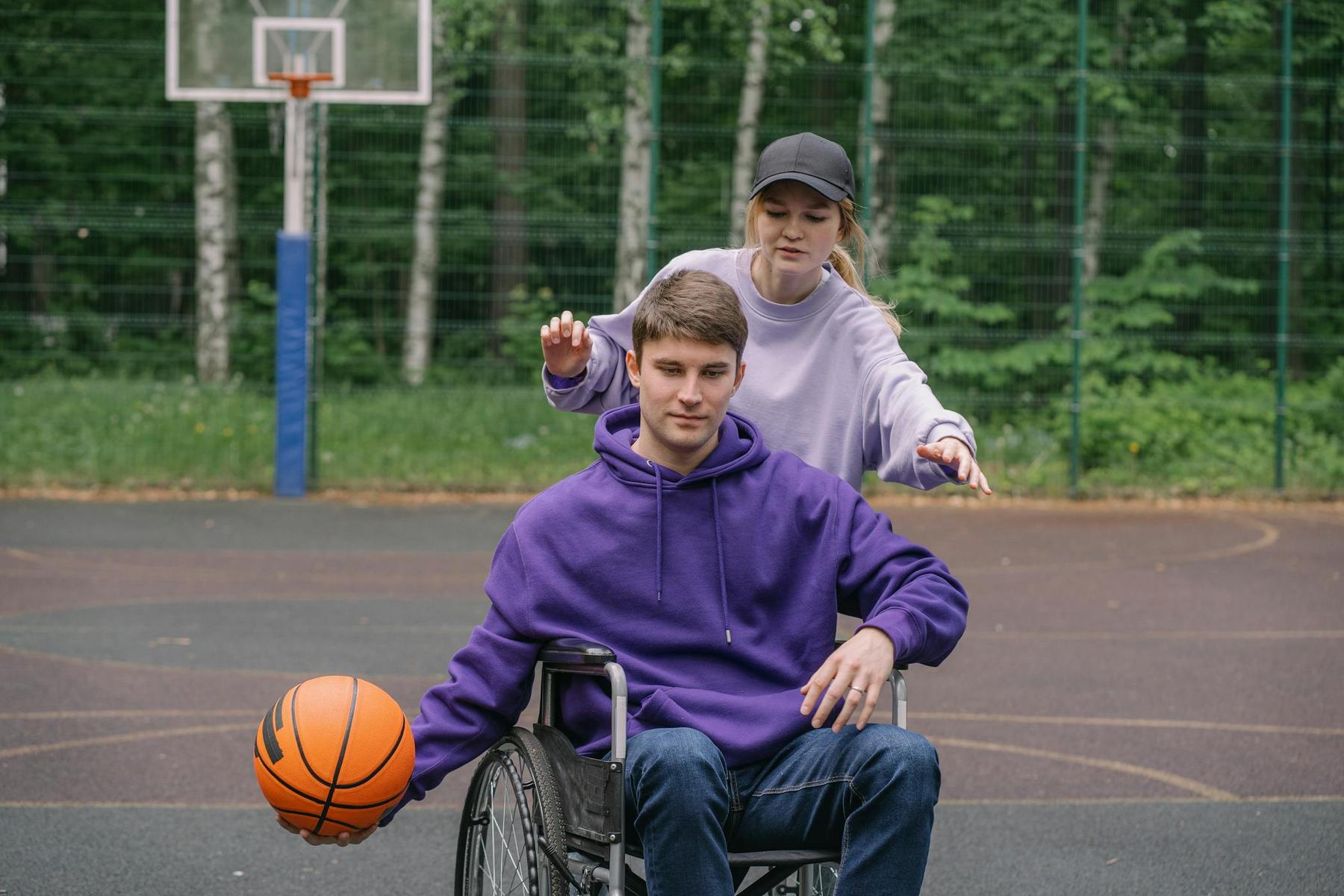In the bustling communities of Cairns and Brisbane, thousands of individuals with disabilities and their families navigate the complex landscape of support services, seeking more than just basic assistance—they’re searching for genuine understanding, respect, and pathways to meaningful independence. The journey towards comprehensive disability support has evolved dramatically from institutional care models to person-centred approaches that recognise each individual’s unique strengths, aspirations, and inherent dignity. This transformation reflects a growing understanding that true compassionate care in disability services extends far beyond meeting basic needs; it encompasses building authentic relationships, fostering trust, and creating environments where independence can flourish naturally and safely.
What Makes Compassionate Care the Foundation of Effective Disability Support?
Compassionate care in disability services represents a fundamental shift from traditional medical models that focused primarily on deficits and limitations to holistic approaches that celebrate individual strengths and possibilities. This person-centred philosophy positions individuals with disabilities at the centre of all decisions affecting their lives, moving away from paternalistic models towards collaborative partnerships that honour personal autonomy and individual preferences.
The National Disability Insurance Scheme (NDIS) has codified these principles within its practice standards, requiring providers to acknowledge and incorporate the legal and human rights of participants into everyday practice. This means ensuring communication is responsive to individual needs and comprehensible through appropriate language, modes of communication, and terminology that resonates with each person’s unique circumstances and cultural background.
Research demonstrates that culturally competent compassionate care improves participant engagement metrics by 74% and reduces service disparities by 27% in diverse communities. In regions like Queensland, where communities host residents from over 100 different cultural backgrounds, this statistical improvement translates into tangible benefits for individuals and families accessing disability support services.
The transformation from welfare-based models to empowerment frameworks represents more than philosophical change—it requires practical implementation through Active Support methodology. This approach ensures individuals receive precisely the right amount of support, neither excessive nor insufficient, while empowering them to maintain control over their lives and actively participate in activities rather than having staff perform tasks on their behalf.
Person-centred care encompasses multiple interconnected dimensions working synergistically to create meaningful support experiences. The approach demands sophisticated assessment capabilities and ongoing adjustment as individual needs, preferences, and capacities evolve over time. This dynamic responsiveness forms the bedrock upon which trust, communication, and independence can be built systematically and sustainably.
| Traditional Care Approach | Compassionate Person-Centred Care | Measurable Outcomes |
|---|---|---|
| Focus on deficits and limitations | Celebrates strengths and possibilities | 74% improvement in engagement |
| Standardised service delivery | Individualised support plans | 27% reduction in service disparities |
| Provider-led decision making | Collaborative partnerships | Enhanced autonomy and satisfaction |
| Task-focused interactions | Relationship-centred support | Improved quality of life indicators |
How Does Trust Building Transform Support Relationships in Disability Services?
Trust formation represents the cornerstone of sustainable, effective relationships between disabled individuals, their families, and support workers. Research has identified three key mechanisms that drive positive relationship outcomes: clear communication, genuine trust building, and developing natural interaction flow. These mechanisms operate dynamically within the complex relationships between individuals, families, and support teams, requiring careful attention to how each mechanism manifests for different people while managing the delicate balance between providing support and promoting independence.
Clear communication emerges as fundamental to trust development, yet its implementation requires sophisticated understanding of diverse communication needs, preferences, and capabilities. Effective communication strategies must be responsive to individual requirements, utilising appropriate language, terminology, and modes of interaction that ensure comprehension and meaningful engagement. This responsiveness extends beyond basic language considerations to encompass cultural communication patterns, sensory processing differences, cognitive communication styles, and personal preferences for information sharing and decision-making participation.
The development of communication competency among support workers requires comprehensive training addressing both technical skills and emotional intelligence capabilities. Effective verbal communication techniques include using normal tone of voice, employing simple language, avoiding jargon and technical terms, and being mindful of phrasing to avoid negative or judgmental language. These verbal skills must be complemented by mastery of non-verbal communication, including awareness of body language, appropriate eye contact, personal space considerations, and gesture use that conveys empathy and understanding.
Active listening represents a particularly crucial communication skill that demonstrates respect for individual perspectives and experiences. Support workers must pay attention not only to verbal communication but also to non-verbal cues including body language, facial expressions, and eye movements that provide valuable insights into unspoken needs and feelings. This comprehensive listening approach enables support workers to respond in ways that validate emotions, clarify understanding, and build deeper rapport with participants and their families.
Trust building requires consistent demonstration of reliability, competence, and genuine care over extended periods. Research indicates that establishing trusted support networks, while time-intensive, significantly accelerates independence development for individuals with disabilities. Trust formation involves multiple dimensions including professional competence, emotional availability, cultural sensitivity, and ethical behaviour that collectively create safe environments for vulnerable individuals to share their experiences, concerns, and aspirations.
What Role Does Cultural Competence Play in Compassionate Disability Care?
Cultural competence in compassionate care extends far beyond basic cultural awareness to encompass systematic transformation of service delivery approaches that honour diverse cultural perspectives, communication styles, and care preferences. In Queensland’s multicultural communities, particularly in Cairns where 22% of residents are overseas-born and 10% identify as First Nations peoples, the implementation of culturally competent care becomes essential for equitable service outcomes and meaningful community engagement.
Cultural safety represents the evolution from basic cultural awareness to systematic change that ensures participants experience care environments as spiritually, socially, and emotionally secure. Unlike cultural awareness, which focuses primarily on knowledge acquisition, cultural safety demands dismantling institutional barriers and co-designing services that genuinely reflect participant needs and preferences. This paradigm shift requires organisations to examine their policies, procedures, and practices through cultural lenses, identifying and addressing systemic barriers that may inadvertently exclude or disadvantage individuals from diverse backgrounds.
The NDIS framework explicitly recognises cultural competence as essential for equitable service delivery, with the NDIS Culturally and Linguistically Diverse (CALD) Strategy developed through consultation with over 800 culturally diverse stakeholders. This recognition stems from documented evidence showing that traditional, one-size-fits-all approaches often fail to address the unique needs and perspectives of culturally diverse participants and their families.
Language considerations represent a fundamental aspect of culturally competent compassionate care, yet only 12% of NDIS providers currently employ bilingual staff, creating significant communication barriers for individuals whose first language is not English. This staffing gap necessitates creative solutions including interpreter services, multilingual resources, and cultural broker programs that facilitate communication and understanding between service providers and culturally diverse participants and their families.
The integration of cultural practices into disability support planning requires flexible service delivery models that accommodate diverse approaches to disability understanding, family involvement, decision-making processes, and care preferences. Some cultures emphasise collective decision-making involving extended family networks, while others prioritise individual autonomy. Compassionate care in disability services must adapt to these different approaches while maintaining person-centred principles that respect individual rights and preferences.
How Can Technology Enhance Rather Than Replace Human Connection in Disability Support?
Technology integration in compassionate care offers unprecedented opportunities for enhancing independence, communication, and quality of life while maintaining the human connection essential for meaningful support relationships. Assistive technology encompasses a broad range of devices and systems from basic hearing aids and communication aids to sophisticated smart home systems that enable individuals to perform tasks that might otherwise be difficult or impossible.
Smart home technology exemplifies how innovation can promote independence while maintaining safety and security within compassionate care frameworks. Voice-controlled systems enable individuals with mobility limitations to control lighting, temperature, doors, and appliances without physical manipulation, while automated monitoring systems can provide safety oversight without constant human supervision. These technologies must be implemented thoughtfully to enhance rather than replace human relationships, ensuring that increased independence doesn’t lead to social isolation or reduced human contact.
Communication technology has transformed possibilities for individuals with diverse communication needs, enabling participation in social, educational, and employment opportunities that might previously have been inaccessible. Screen readers provide individuals with visual disabilities access to digital information, while augmentative and alternative communication devices enable individuals with speech difficulties to express themselves effectively. The key to effective communication technology lies in individualised assessment, training, and ongoing support that ensures devices enhance rather than complicate communication efforts.
Virtual reality technology offers innovative approaches to empathy training, skill development, and therapeutic intervention that complement traditional face-to-face approaches in compassionate care settings. Research demonstrates that virtual reality experiences can provide support workers with deeper understanding of disability experiences while offering safe environments for individuals to practice social skills, explore community environments, or engage in therapeutic activities. These technological approaches must be integrated carefully with human relationships rather than replacing interpersonal connection and support.
Digital platforms facilitate ongoing communication and coordination among support teams, families, and individuals, enabling more responsive and coordinated compassionate care. These systems can track goals, monitor progress, facilitate communication between support sessions, and provide accessible formats for individuals with different communication preferences. However, digital communication must supplement rather than replace face-to-face interaction and relationship building that forms the foundation of effective disability support.
What Evidence-Based Practices Support Independence While Maintaining Compassionate Care?
Evidence-based practice in disability services integrates research findings with professional expertise and individual preferences to ensure interventions are both effective and meaningful to participants. The NDIS Quality and Safeguards Commission has identified three person-centred practices with strong evidence bases that exemplify compassionate care in disability services: Person-Centred Planning, Active Support, and Behaviour Support.
Person-Centred Planning represents a systematic approach to supporting individuals with disabilities in planning their futures and organising support structures through compassionate care principles. This methodology focuses on including individuals in discussions and decision-making to support quality of life development based on choices, preferences, shared power, rights, and inclusion. Implementation involves collaborative processes that identify meaningful life goals based on individual strengths and talents, utilising natural, creative supports and services that align with personal values and aspirations.
Active Support provides evidence-based methodology for supporting individuals with intellectual disabilities to participate in meaningful activities and social relationships through everyday opportunities within compassionate care frameworks. This approach involves providing graded assistance tailored to individual needs, pace, and preferences to ensure successful participation and enhanced control over daily life experiences. Research demonstrates that Active Support implementation significantly increases engagement, choice, control, and social inclusion, particularly when used consistently across support environments.
Behaviour Support offers evidence-based approaches for understanding and addressing behaviours of concern through comprehensive assessment, intervention, and data-based decision making within compassionate care principles. This methodology recognises that behaviours serve functions for individuals and often represent communication attempts or efforts to exert control over environments. Effective behaviour support involves developing understanding of behavioural functions and implementing evidence-informed strategies that reduce behaviour impact while enhancing quality of life.
The integration of these three approaches creates synergistic effects that amplify individual benefits while creating comprehensive support frameworks rooted in compassionate care. When Active Support is implemented in conjunction with Behaviour Support, therapeutic effects emerge that enhance both behavioural outcomes and quality of life indicators. This integration requires coordinated training, consistent implementation, and ongoing evaluation to ensure fidelity and effectiveness across different support contexts.
Empathy represents a fundamental professional competency that differentiates exceptional support workers from those providing merely adequate care within compassionate care frameworks. Research demonstrates that empathy significantly improves communication quality and relationships with service users while enhancing worker responsiveness to participant needs. This emotional intelligence component requires systematic development through training, practice, and reflective processes that enable support workers to understand and share the feelings and perspectives of individuals they support.
Moving Forward: The Future of Compassionate Disability Care
The evolution of compassionate care in disability services represents a fundamental transformation that continues to shape how support is conceptualised and delivered across Queensland and beyond. This comprehensive approach to disability support recognises that effective care extends far beyond task completion to encompass emotional well-being, dignity preservation, and empowerment through collaborative relationships that honour individual autonomy while providing necessary assistance.
The establishment of trust through clear communication, empathetic engagement, and reliable support creates the foundation upon which independence can flourish naturally and sustainably. The triadic relationships among individuals with disabilities, their families, and support workers require careful attention to communication patterns, cultural preferences, and individual needs while balancing autonomy with appropriate safety considerations rooted in compassionate care principles.
Cultural competence emerges as essential for equitable service delivery in increasingly diverse communities, requiring systematic transformation of organisational approaches rather than superficial cultural awareness training. The development of culturally safe environments within compassionate care frameworks demands dismantling institutional barriers while co-designing services that reflect diverse cultural values, communication styles, and care preferences.
Technology integration offers unprecedented opportunities for enhancing independence and communication while creating new possibilities for maintaining the human connections that form the heart of compassionate care in disability services. Successful technology implementation requires careful matching of technological capabilities with individual needs and preferences while ensuring that digital solutions enhance rather than replace the empathetic relationships that enable meaningful support.
Evidence-based approaches including Person-Centred Planning, Active Support, and Behaviour Support provide proven frameworks for achieving significant outcomes when implemented consistently within compassionate care principles. These methodologies require comprehensive training, ongoing supervision, and quality improvement processes that ensure fidelity while adapting to individual needs and organisational contexts.
The future of disability support depends on continued integration of innovation with fundamental human values, ensuring that service improvements enhance rather than diminish the empathetic relationships and person-centred approaches that enable individuals to thrive. The ultimate measure of success lies not in service efficiency alone, but in the extent to which individuals with disabilities experience dignity, autonomy, and meaningful participation in community life through support that honours their inherent worth and potential for growth and contribution.
What is the difference between compassionate care and regular disability support services?
Compassionate care in disability services goes beyond basic task completion to focus on building genuine relationships, understanding individual perspectives, and creating environments where trust and independence can develop naturally. Unlike traditional approaches that may focus primarily on completing care tasks, compassionate care emphasises emotional well-being, cultural sensitivity, and collaborative decision-making that respects individual autonomy while providing necessary support.
How can families identify providers who truly offer compassionate care in disability services?
Look for providers who demonstrate person-centred approaches by involving individuals in decision-making, showing flexibility in service delivery to accommodate cultural preferences and individual needs, and maintaining consistent, trained staff who build genuine relationships over time. Quality providers will also show evidence of cultural competence, ongoing staff training in empathy and communication, and implementation of evidence-based practices like Active Support and Person-Centred Planning.
What role do families play in compassionate care approaches for disability support?
Families are recognised as essential partners in compassionate care, with their knowledge, preferences, and cultural perspectives valued and integrated into support planning. Quality providers work collaboratively with families to understand individual histories, communication styles, and goals while respecting family dynamics and decision-making preferences. However, the approach always maintains focus on the individual’s rights and autonomy within the family context.
How does compassionate care support independence development for people with disabilities?
Compassionate care promotes independence through strength-based approaches that recognise individual capabilities and provide graded assistance tailored to personal pace and preferences. Rather than doing things for people, compassionate support enables participation and builds confidence through everyday decision-making opportunities, skill development, and community engagement while maintaining appropriate safety considerations and emotional support.
Can technology be part of compassionate care in disability services?
Yes, when implemented thoughtfully, technology can enhance compassionate care by promoting independence, improving communication, and enabling greater community participation. However, successful technology integration always supplements rather than replaces human relationships and must be matched to individual needs, preferences, and goals. The focus remains on using technology to enhance dignity, choice, and meaningful participation rather than simply increasing efficiency.



